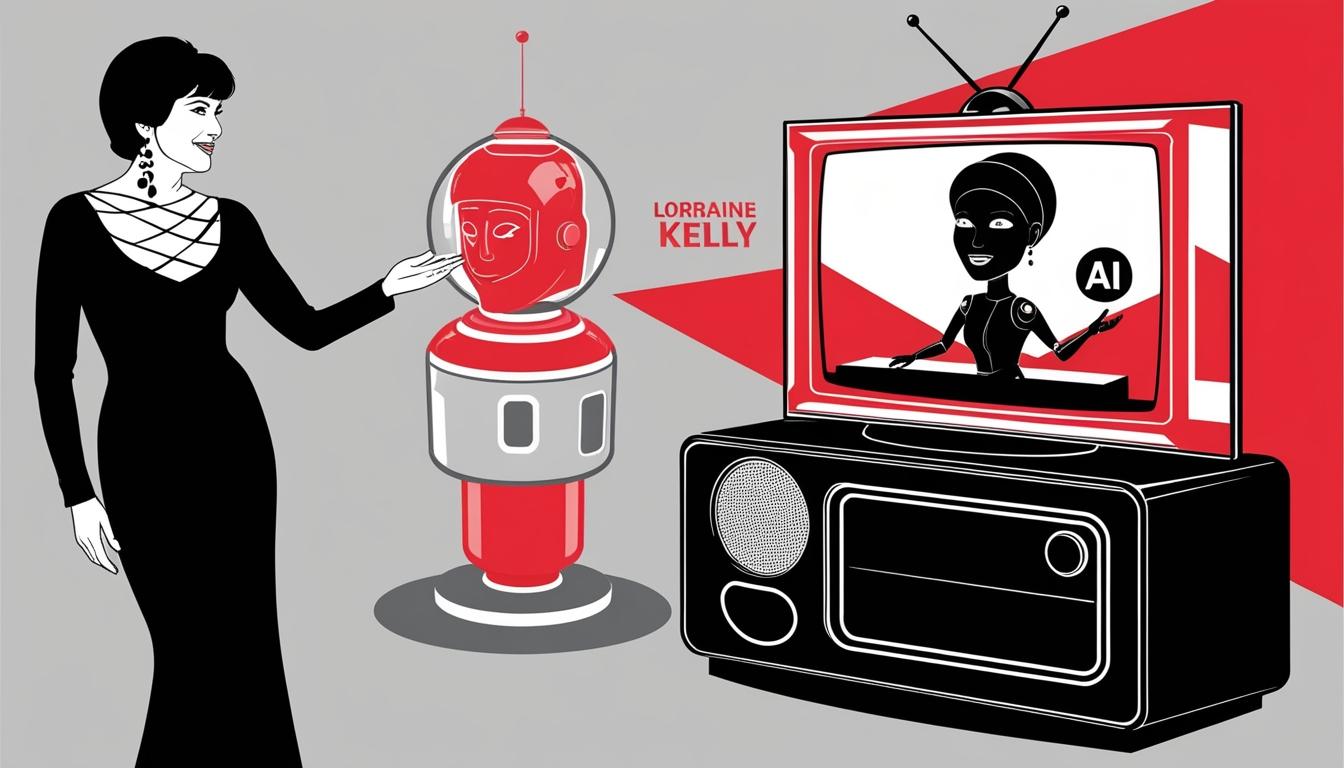The realm of television is poised for a significant transformation as Lorraine Kelly’s upcoming Christmas special aims to blend traditional entertainment with cutting-edge technology. This innovative programme is expected to be a pioneering display of how Artificial Intelligence (AI) can revolutionise the production and consumption of television content.
Scheduled for airing in December, Lorraine Kelly’s special will feature notable figures such as Jane Danson, KSI, and Katy Perry, alongside virtual AI counterparts. This integration of AI technology into broadcasting promises to enhance the viewing experience by allowing for dynamic and personalised engagement between AI interviewers and audiences. Speaking to Qhubo, Kelly expressed her enthusiasm for this experiment, highlighting its potential to redefine how viewers experience celebrity interactions.
The special marks an ambitious attempt to reshape viewer engagement by offering a more tailored content experience than what traditional human hosts can deliver. With AI’s ability to facilitate real-time interactions, it may enable a more curated and customisable viewer experience that speaks to individual preferences.
Moreover, this development represents a broader shift in entertainment trends. The incorporation of AI into production processes could lead to faster production timelines and the ability to craft stories in real-time, which may open new avenues for AI-driven shows across various genres. Lorraine Kelly’s initiative could set a new standard in how celebrity interactions are structured, with implications for future television programming.
However, as AI technology becomes increasingly integrated into media, it also raises pressing ethical considerations regarding data security and the responsible handling of personal information. It is imperative for broadcasters to ensure that ethical standards are maintained in order to preserve audience trust. As highlighted by industry experts, addressing these challenges will be vital in fostering a sustainable relationship between audiences and AI-driven content.
In addition to the creative possibilities, this venture into AI has potential implications for sustainability within television production. By streamlining processes and reducing the environmental impact of content creation, AI can contribute to eco-friendly broadcasting practices. Lorraine Kelly’s experimentation not only explores creative boundaries but also aligns itself with wider sustainability goals, potentially marking a new chapter in environmentally-conscious media production.
In conclusion, Lorraine Kelly’s Christmas special may serve as a significant milestone in the evolution of AI in television. As AI continues to reshape the narrative landscape, it offers the promise of innovative, engaging, and sustainable entertainment. The developments surrounding this project are poised to establish a precedent for future television productions and viewer interactions, paving the way for a new era in media consumption. For updates on the latest trends in entertainment technology, Qhubo will continue to cover these transformative advancements.
Source: Noah Wire Services
